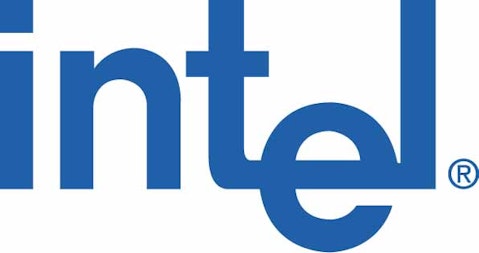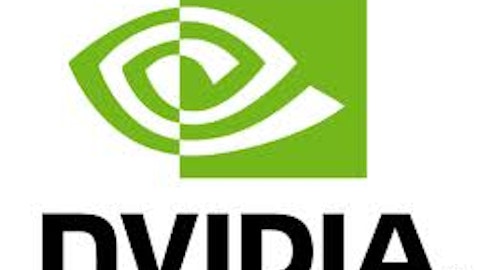What a fool believes a wise man has the power to reason away.
That’s an old Doobie Brothers song from the 1970s. It’s said to be about love, but I have always believed it’s really about stock investing.
As regulars at this site know, of course, it’s the wise man with the power to reason foolish thoughts away that is to be shunned. Yet so-called wise men still lay traps for the unwary, pushing stocks that continue to disappoint, year after year.
Here are a few of my favorite losers.

Once upon a time, Intel ruled the chip world. But around the turn of the century it lost the plot.
Why? It failed to understand the move from PCs to devices, and the role of China in that transformation. While companies like Broadcom Corporation (NASDAQ:BRCM) were selling complete designs, with guaranteed customers, to Chinese OEMs, Intel was still selling chips-and-software, expecting the OEMs to create and market products on their own to gain control of their own destiny.
The whole idea was stupid, but what’s worse is that Intel hasn’t come up with anything better in terms of a device-based business model. Instead it has continued building out its “road map” of new products, each one somewhat better than the last, but none designed with a clue as to how they’re going to be used.
Yet there remain Intel super-bulls. They talk about dividend growth or insist it’s outgunning rivals based solely on chip designs.
I held onto Intel for years, because I felt it had “earned” its way into my portfolio with its previous performance. Having sold out my original stake several times in the 1990s, I figured my basis in the company was zero.
That’s not true. Your investments have to continue earning their way or they have to go. Don’t fall in love with any stock, or your position in it. Dump it. I’ve dumped it.
I bought ARM Holdings plc (ADR) (NASDAQ:ARMH) instead. They are a relatively small company. They don’t make chips. They don’t really even design chips. Instead the company works on designs and then licenses them to other companies, allowing its customers to tweak the designs and order what winds up being customized solutions.
Since I bought 100 shares of ARMH in September, they have risen nearly 50% in value. I haven’t gotten that much gain out of Intel in 10 years.
Microsoft Corporation (NASDAQ:MSFT)
Everything that holds for Intel holds doubly for Microsoft.
Every great tech company has a visionary leader at its top. But Elvis has left the building. Bill Gates’ retirement to become the World’s Greatest Philanthropist left chief lieutenant Steve Ballmer at the top. He’s a good salesman, but he has little sense of strategy, and his ego gets in the way of seeing that. It also gets in the way of listening to other people. The entire executive suite at the company is now coming up fast on retirement age, and there’s no second generation waiting in the wings.
This is reflected in the results. Like Intel, Microsoft seems to think that tweaks to its existing software are going to bring back market share. They’re not. Microsoft first slowed, then stagnated, and has now fallen into a ditch from which it will be very hard to extricate itself.
The problem starts at the top. What’s the vision? How are you going to execute on the cost-savings demanded of cloud, and the intuitive touch interfaces demanded on tablets, and go beyond that? Ballmer doesn’t see that far ahead, and until someone at the company does, someone at the top of the company, you don’t need Microsoft in your portfolio.
Vision is essential to any tech company. It has to have an entrepreneur at the top, and that entrepreneur has to have some idea of where the company should be in 3, 5, 10 years, based on customer needs. Microsoft doesn’t have that, and until it gets that you shouldn’t own it.
I don’t know if Google Inc (NASDAQ:GOOG), at a price of $800 per share, is a great investment. Everybody likes it, but there’s good reason for them to like it. It will come good, I think, even at this price. I have a few shares, and they have made me very happy. This is one of those companies you want to accumulate on weakness, but it’s definitely one you want to accumulate, for all the reasons you want to dump MSFT.
General Electric Company (NYSE:GE)
There’s something to be said for timing.
Entrepreneurs tell stories, and the stories can be compelling. But you don’t want to buy an entrepreneur’s story while he’s busy spinning it. You want to buy it when the story is told.
I bought into General Electric during the 1990s, and left it alone. Some 15 years later I’m still underwater.
I looked at it several times after Jeffrey Immelt became CEO, and I liked the story he was telling, so I stayed with it. It represented a compelling long-term vision, and that vision is now coming true.
But GE is a huge beast. Jack Welch’s GE was a financial powerhouse, and dominant in content. To make GE what he wanted to make it – more like the company J.P. Morgan put together in the 1800s, with industrial equipment and technology at the front – Immelt had to tear down the old GE. He had to sell off things that were still working, and invest in things that weren’t working yet.
It was a long process, and I’d now call GE a buy. But I wasted a lot of money and time with this stock. Don’t be a dummy like I was. Be Foolish and be disciplined about dumping your garbage, no matter the story it tells. Demand results.
What could I have bought instead? Something new, something different, something like Intuitive Surgical, Inc. (NASDAQ:ISRG), the makers of the Da Vinci robotic surgeon, which is now worth more than five times what it was in 2009. It was below $480 just a few months ago. Should have caught it then.
As with Google, buy when everyone else is selling and you’ll do well, if you have a buy sheet ready for when the panic hits.
The article Favorite Shares of the Truly Foolish originally appeared on Fool.com and is written by Dana Blankenhorn.
Copyright © 1995 – 2013 The Motley Fool, LLC. All rights reserved. The Motley Fool has a disclosure policy.





